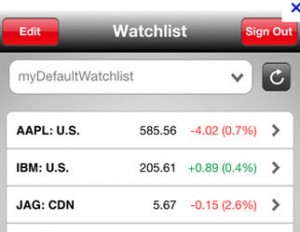Transferring money to discount brokerages
As painful as it is, sometimes you need to cut your losses, pay the deferred sales charges and move to a new brokerage.
Advertisement
As painful as it is, sometimes you need to cut your losses, pay the deferred sales charges and move to a new brokerage.
 Question
Our mutual funds have not increased in value hardly at all over the last 15 years. We have finally decided to transfer the money to our discount brokerage account and manage it ourselves. My question is: Should we transfer all of the funds at once? We are concerned with transfer fees from the fund company to our discount brokerage account and more losses in terms of deferred service charges. We have numerous mutual funds, which adds to the confusion.
Answer
No return in 15 years? Ouch. It’s no wonder that you’re looking at making a big change. Global stock markets have had tremendous volatility over that period of time, but they are generally higher than they were back then. The S&P 500, for example, is up 63% since 1997 which is a much better increase than the ‘hardly at all’ you received.
The simple answer on whether to go “all at once” is yes. As painful as it is, you don’t really want the stress of moving day to last for three months. Here are some other things to think about:
Don’t worry too much about transfer fees: Transfer fees may apply to move your portfolio over to a discount broker but they won’t likely be more than $100. Don’t delay your plan because of these fees—instead ask your discount broker if they will give you a rebate to cover them. Representatives often have discretion over these types of fees so be your most charming self when you meet with them.
Transfer your mutual finds in kind: For simplicity, I would recommend that you transfer your funds all at once, and if the discount broker offers the funds that you currently hold, you might transfer them over “in kind.” This allows you to decide later which you want to sell and when. If the funds are propriety to your current firm, or they belong to an “adviser” series versus an “investors” series that may not be possible—you will have to sell them as you move to the discount broker. A quick phone call will sort that out what’s what.
Minimize the cost of deferred sales charges: Before you tell your current firm you’re leaving, ask them to calculate the cost of the deferred sales charges on each fund you own. If you bought the funds recently, the DSC will be at its highest and if you bought them years ago the DSC may have even worked itself out already. Here are some ways to minimize the cost.
Question
Our mutual funds have not increased in value hardly at all over the last 15 years. We have finally decided to transfer the money to our discount brokerage account and manage it ourselves. My question is: Should we transfer all of the funds at once? We are concerned with transfer fees from the fund company to our discount brokerage account and more losses in terms of deferred service charges. We have numerous mutual funds, which adds to the confusion.
Answer
No return in 15 years? Ouch. It’s no wonder that you’re looking at making a big change. Global stock markets have had tremendous volatility over that period of time, but they are generally higher than they were back then. The S&P 500, for example, is up 63% since 1997 which is a much better increase than the ‘hardly at all’ you received.
The simple answer on whether to go “all at once” is yes. As painful as it is, you don’t really want the stress of moving day to last for three months. Here are some other things to think about:
Don’t worry too much about transfer fees: Transfer fees may apply to move your portfolio over to a discount broker but they won’t likely be more than $100. Don’t delay your plan because of these fees—instead ask your discount broker if they will give you a rebate to cover them. Representatives often have discretion over these types of fees so be your most charming self when you meet with them.
Transfer your mutual finds in kind: For simplicity, I would recommend that you transfer your funds all at once, and if the discount broker offers the funds that you currently hold, you might transfer them over “in kind.” This allows you to decide later which you want to sell and when. If the funds are propriety to your current firm, or they belong to an “adviser” series versus an “investors” series that may not be possible—you will have to sell them as you move to the discount broker. A quick phone call will sort that out what’s what.
Minimize the cost of deferred sales charges: Before you tell your current firm you’re leaving, ask them to calculate the cost of the deferred sales charges on each fund you own. If you bought the funds recently, the DSC will be at its highest and if you bought them years ago the DSC may have even worked itself out already. Here are some ways to minimize the cost.
Share this article Share on Facebook Share on Twitter Share on Linkedin Share on Reddit Share on Email